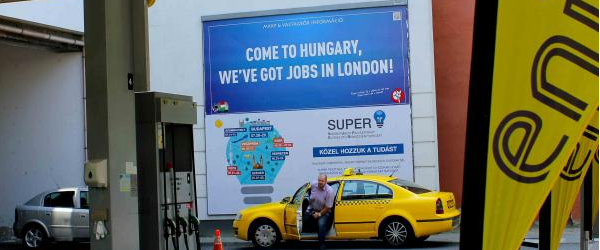'Nowadays, you can hear Hungarian on every street corner in London,' say Hungarian immigrants. In Hungary, almost everyone has a family member or friend who has left the country in search of a better life. This phenomenon regularly makes the headlines, with figures that overshadow previous ones, leaving no one unmoved.
According to the most recent figures, around 800,000 Hungarians are employed in other countries (out of a total population of almost ten million). The majority of these people work in the United Kingdom, followed by Austria and Germany.
Ten years after joining the European Union, Hungary has yet to fulfil its promise of prosperity. Wages remain extremely low, and poverty is widespread. This has encouraged xenophobia, which is further fuelled by the right-wing populist government of Prime Minister Viktor Orbán.
The political situation is also a cause for concern for many people. Media manipulation, corruption, and the elite's culture of self-service are common topics of conversation, as is the Orbán government's increasing concentration of power. "It's not Russia yet, but it's starting to look like it. I think it's only two years away," says investigative journalist Katalin Erdélyi.



